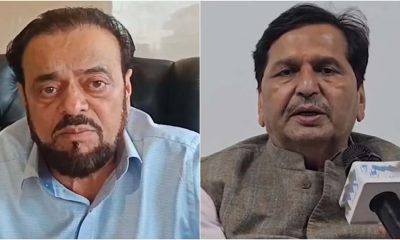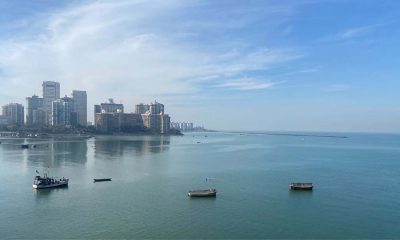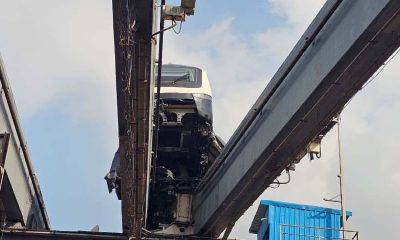International News
‘Don’t Think PM Modi Has Handled China Well…’: Rahul Gandhi Attacks BJP Over Border Standoff
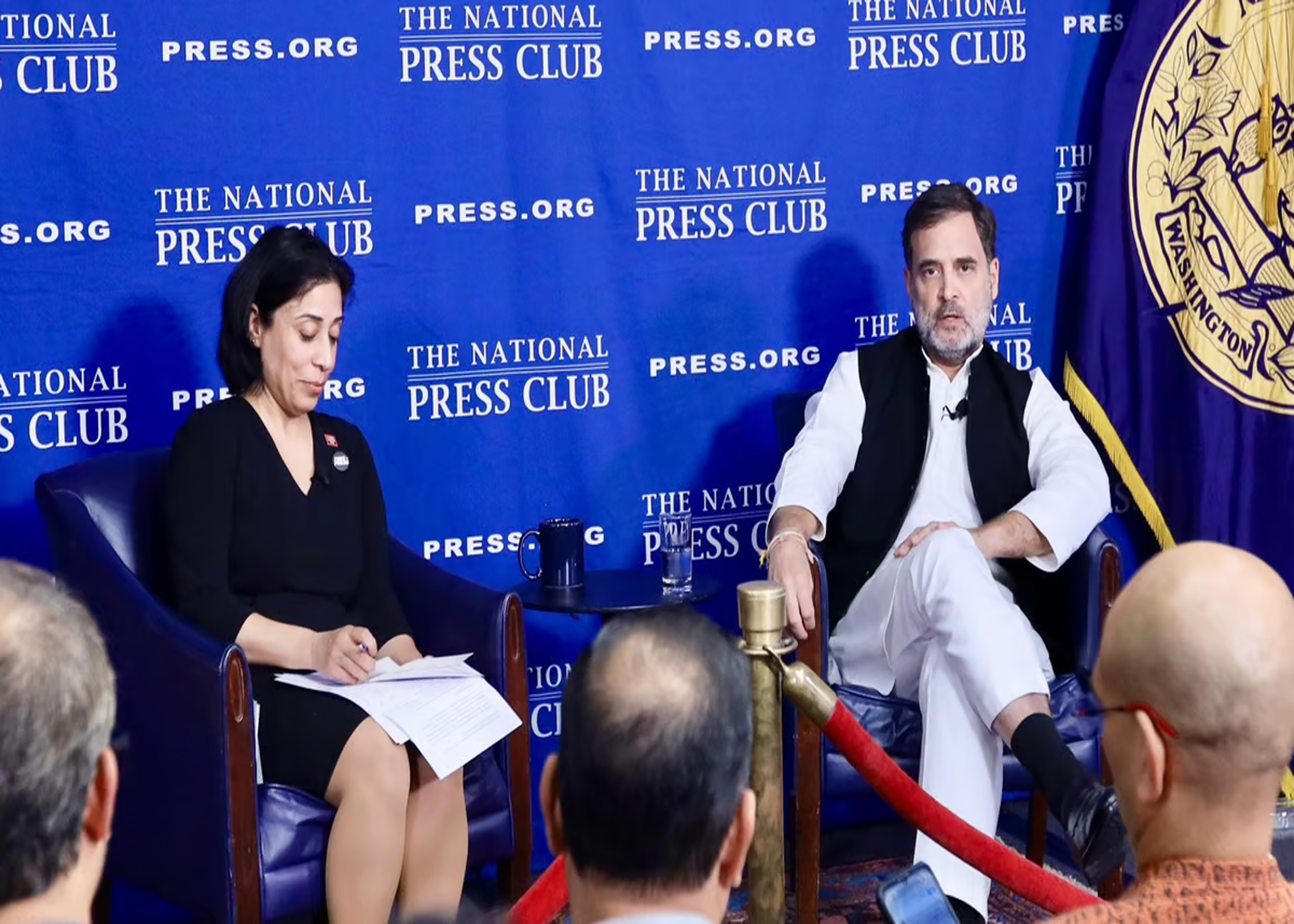
Washington DC [US], September 11/ Leader of the Opposition in the Lok Sabha, Rahul Gandhi came out heavily against the Bharatiya Janata Party-led Centre over the border standoff with China and said that Prime Minister Narendra Modi has not handled the situation well.
The Congress leader was speaking at an interaction with media at the National Press Club in Washington DC on Tuesday (local time).
“We’ve got Chinese troops occupying land the size of Delhi in Ladakh, and I think that’s a disaster. The media doesn’t like to write about it. How would America react if a neighbour occupied 4,000 square kilometers of its territory? Would any president be able to get away with saying he’s handled that well? So, I don’t think Mr Modi has handled China well at all. I see no reason why Chinese troops should be sitting in our territory,” Rahul Gandhi said.
Notably, in 2020, the Indian and Chinese troops clashed at Galwan, the same year the pandemic started.
Since May 2020, when the Chinese troops tried to aggressively change the status quo on LAC in eastern Ladakh, both sides have been deployed in forward positions near Patrolling Point 15, which emerged as a friction point in the wake of the Galwan clash.
Over 50,000 Indian soldiers have been stationed since 2020 at forward posts along the LAC, with advanced weapons to prevent any attempts to change the status quo unilaterally on the LAC.
Terming the Chinese vision of production as “non-democratic”, the Raebareli MP stressed on the idea of US and India placing a production vision in a democratic and free society.
“We don’t want to do it like the Chinese are doing it. We don’t want to do it in an environment which is non-democratic, which is not liberal. So the real question for the 21st century, the Chinese have placed a production vision on the table. It’s a non-democratic production vision. Can the United States and India answer that by placing a vision for production in a democratic free society? And I think that’s where a lot of answers lie,” he said.
Rahul, also opened on his new role and responsibilities as the Leader of Opposition, and said there is an ideological war taking place between the INDIA bloc and the BJP-RSS. He further vowed that the Opposition wants to ‘defend’ India’s institutions and provide a broader vision for the country.
“It’s an extension of what I did earlier. There’s an ideological war taking place in India between the Congress and our partners and the BJP and the RSS. They are two completely different visions of India. We believe in a plural vision, a vision where everybody has a right to thrive… an India where you’re not persecuted because of what religion you believe in or what community you come from or which language you speak, versus a much harsher, centralizing vision. So that’s the landscape. And then we fight on that landscape,” the Congress leader further said.
“[We want to] defend India’s institutions, defend the weaker sections in India, defend the lower caste, tribals, minorities, poor people. After the yatra, I try to become the voice of as many people as I can. So for that…you have to go deeper, deep into the agricultural world, the conflicts that are taking place there, into the financial system, into the tax system. So you have to, in a sense, go deep into it, talk to people and then get, understand deeply what they’re saying and then transmit it and at a broader level, provide a vision, INDIA alliance vision for the country, which is obviously going to be fundamentally different than the centralizing, monopolized vision that the BJP is presenting,” he added.
The Congress leader further said that at one time the West used to be the producer of the world, but slowly China took over the responsibility.
He said that not manufacturing enough means, not enough employment can be generated. Rahul further added that there is a huge opportunity for both India and the US to regain the ability to produce.
I am more interested in the act of production: Rahul
“Here in the United States that the West, America, Europe, and India, the West used to be the producer of the world. If you wanted to buy a car, in the 60s, you bought an American car, washing machine, refrigerator…You guys were at the forefront of that. And then somewhere along the line, America decided, India decided, and the West decided that we’re just going to stop. And we handed the whole thing to the Chinese. Now for a country like India, to simply say that we’re going to ignore manufacturing, and only run a services-based economy, it means you cannot give employment to people,” Rahul Gandhi “I am more interested in the act of production- also called manufacturing. Look at what most American, Indian and European countries do. They organize consumption. Uber organizes consumption. Organizing consumption is easy. Organizing production is a completely different ballgame, much more complicated. You have to deal with things when you organize production that you simply don’t have to deal with when you organize production. So to me, there’s a huge opportunity for India and the United States to regain that ability to produce,” he further added.
Speaking on the unemployment situation, the LoP in Lok Sabha said he wants to support small and medium-small businesses and promote a decentralised production system.
“We have a government in Karnataka and Telangana. Each area in India has its own specialty of production. If you go to pretty much any district, Ballari in Karnataka has a very deep textile industry which has been destroyed. So we are looking at these pockets of excellence and then trying to bring modern technology, financial support to build them. So the vision would be more of a decentralized production system. Unlike China, which is huge factories, we would be thinking about smaller and small medium businesses and embedding modern technology into that. We’re testing some of these ideas in Karnataka and Telangana,” he said.
Rahul Gandhi is on a three-day visit to the United States. During this, he has interacted with Indian diaspora besides students and faculty at universities and also met US lawmakers.
This is Rahul Gandhi first visit to the US after he became Leader of Opposition in the Lok Sabha.
International News
ECI hosts global delegates during Bihar elections under poll visitors’ initiative

New Delhi, Nov 6: As polling for the first phase of the Bihar Assembly elections got underway on Thursday, the Election Commission of India (ECI) on Thursday welcomed 16 delegates from six countries under its International Election Visitors’ Programme (IEVP).
The initiative, aimed at fostering global cooperation and transparency in electoral processes, saw participants from Colombia, Indonesia, Thailand, The Philippines, Belgium, and South Africa witnessing the on-ground arrangements of one of the world’s largest democratic exercises.
“Under the International Election Visitors’ Programme (IEVP) of the ECI, 16 delegates from 6 countries – Colombia, Indonesia, Thailand, Philippines, Belgium, South Africa are witnessing the never before arrangements made by the ECI,” the poll panel said on X.
According to the ECI, the IEVP 2025 began earlier this week at the India International Institute for Democracy and Election Management (IIIDEM) in New Delhi on November 4.
The inaugural session was chaired by Chief Election Commissioner Gyanesh Kumar and Election Commissioner Vivek Joshi, who interacted with the visiting delegates and briefed them about India’s robust electoral framework.
During the Delhi leg, participants were given a detailed presentation on the functioning of Electronic Voting Machines (EVMs), voter roll management, and logistical preparedness.
“IEVP includes a two-day tour of Bihar from November 5-6, 2025 where the participants will visit the EVM dispatch centres and witness the actual polling on November 6, 2025,” the ECI said in its Press note earlier.
The IEVP is a flagship program of the ECI for international cooperation and engagement with the Election Management Bodies (EMBs) of other countries and international organisations.
The IEVP, launched in 2014, serves as the ECI’s flagship platform for international engagement with Election Management Bodies (EMBs) and global democratic institutions. Through this programme, India showcases its electoral best practices and fosters mutual learning with partner nations.
This year’s edition underlines India’s growing role as a leader in electoral management, with the ECI using the Bihar polls as a live demonstration of its operational scale, transparency, and integrity.
Crime
D-Syndicate looking to expand narco trade into Southern and Northeastern routes, warn Intelligence agencies

New Delhi, Oct 30: In recent months, the Narcotics Control Bureau (NCB) has been cracking down heavily on the Dawood Ibrahim-linked drug network in India.
The arrests of Danish Chikna and Mohammed Salim Sheikh have dealt major blows to the Dawood network, and this has prompted the syndicate to look for newer avenues.
As Intelligence agencies continue to focus heavily on the networks in Maharashtra and neighbouring states, the D-Syndicate is looking to expand its networks in the northeastern and southern states of India.
Action would be taken similarly in these parts of the country. However, it is necessary to bust the networks in states such as Maharashtra and Gujarat, which have been the traditional playground of the syndicate for a long.
While Dawood Ibrahim has diversified his business in various parts of the country, the command centre remains in Maharashtra.
The people working for the network in this sector control the businesses across the country, and hence, breaking their backs first is important. This would eventually lead to the weakening of the networks in other parts of the country.
Operations in the northeastern and southern states are currently overseen by Haji Salim, an ISI stooge and a member of the Dawood network.
Salim has been playing a big part in the D-Syndicate after Dawood’s right-hand man, Chhota Shakeel, has gone mysteriously quiet.
With Dawood’s brother Anees Ibrahim put in charge of the International wing, which does business mostly in African nations, the onus of the Indian markets has largely fallen upon Salim.
According to Intelligence agencies, the ISI and syndicate have now instructed Salim to focus entirely on the southern and northeastern sector as they feel that there is a major potential.
The syndicate sees potential in the northeast owing to the existing routes from Myanmar. With Bangladesh opening up completely to the ISI, the syndicate sees further potential in this sector.
In the South, the syndicate’s network exists. However, this network has largely focused on smuggling drugs out of the country. The narcotics would first be smuggled into the southern states, especially Kerala and Tamil Nadu, and later, to the international markets such as Thailand through the Sri Lanka route.
An Intelligence Bureau official says that the syndicate is also looking to bring in more drugs through Sri Lanka before distributing it in the Indian market.
While the international market is huge for the syndicate, it is not ready to let go of India, as demand is huge.
The syndicate not just wants to cover its losses in Maharashtra, but also the ones it is incurring in Punjab.
Several attempts to bring in drugs through the Punjab route using both couriers and drones are failing owing to heavy scrutiny and security. Hence, the Dawood network wants to take maximum advantage of the southern route so that it can smuggle drugs in huge quantities and then distribute them to the Indian market.
To bring in drugs from the international market, the syndicate would use the route from Sri Lanka. The network would look to smuggle the consignment into Tamil Nadu and Kerala before supplying it into the Indian market.
According to officials, the network feels that this would be an easier route, as most of the consignments in the Indian market will be transported via land route.
The scrutiny at the southern international borders is relatively less when compared to the borders along Punjab or Jammu and Kashmir. Further, using the land route to smuggle drugs into India would also attract less scrutiny, and the syndicate hopes there would be more hits than misses.
Another official also pointed out that the D-Syndicate is also tapping into the illegal immigrants who have settled in South India in huge numbers. They could be used as carriers to supply the drugs into the Indian markets, officials also warned.
Business
US lawmakers unite to defend bilateral ties with India through letters and resolutions
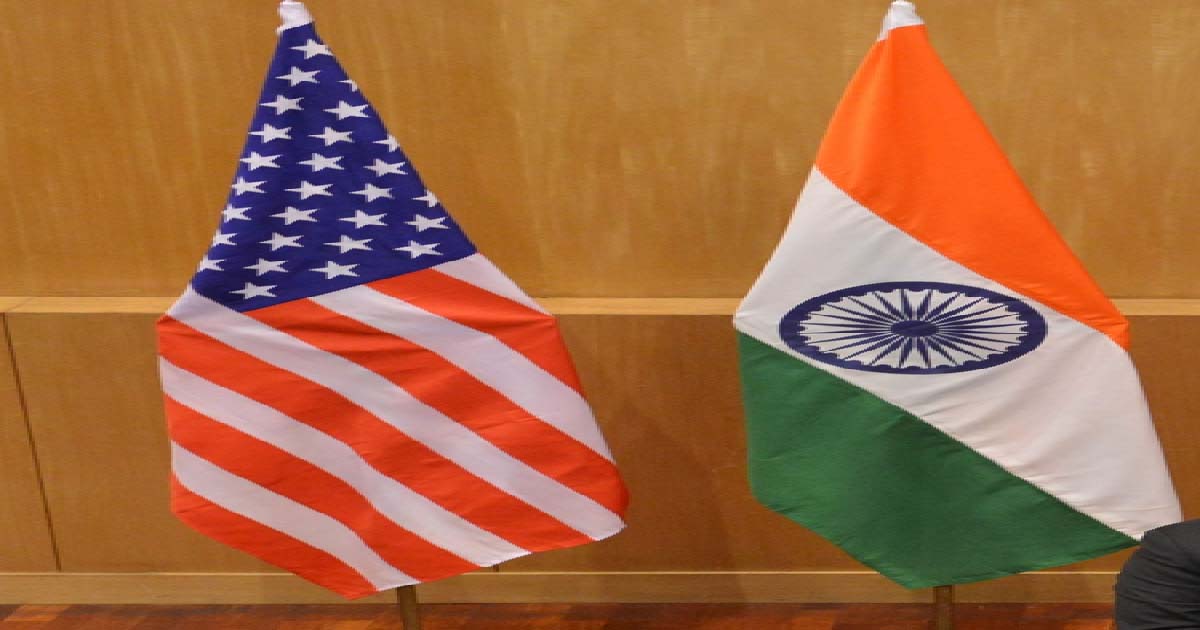
Washington, Oct 28: Both Republican and Democratic lawmakers have joined hands to support the India-US relationship, months after the Trump administration announced a series of policies targeting Indian interests.
At least six bipartisan letters and resolutions have been drafted over the past 10 days defending the interests of the Indian American community, reaffirming support for the India–US partnership, and pressing the administration for accountability over its recent actions targeting New Delhi.
Last week, a group of House members expressed concern that an event at Rutgers University on Monday could “fuel further prejudice” against Hindus at a time when Hindu temples have been targets of violence.
The co-signers of the letter were Democrats Sanford Bishop from Georgia, Shri Thanedar from Illinois, and Suhas Subramanyam from Virginia, and Republican Rich McCormick, also from Georgia.
Two days earlier, another bipartisan group of six House Representatives wrote to US President Donald Trump and Commerce Secretary Howard Lutnick, expressing concerns over the H-1B proclamation.
“We are concerned that the recent proclamation related to H-1B visa petitions will create significant challenges for US employers and overall weaken our competitiveness,” the letter stated.
The group again included Democrat Suhas Subramanyam along with Republican Congressmen Jay Obernolte and Don Bacon, among others.
On October 17, four US lawmakers wrote to President Donald Trump, urging him to attend the Quad Leaders’ Summit in India and other meetings in Asia.
The same day, a bipartisan resolution was introduced in the House of Representatives to recognise the “contributions made to the United States by the Indian American diaspora” and condemn recent acts of racism against Indian Americans.
The resolution also termed the India-US relationship as “one of the most important democratic partnerships in the world”.
It was a sharp departure from just days earlier, when 19 House members, all Democrats with no Republican support, wrote to President Donald Trump on October 8, urging him to “reset and repair” the India-US “critical partnership”.
Leaders from both Democratic and Republican parties have faced criticism for mostly remaining silent as senior officials of the Trump administration, like Trade Advisor Peter Navarro and Commerce Secretary Howard Lutnick, repeatedly targeted India over its purchase of Russian oil and trade imbalance.
In August, the Trump administration imposed 50 per cent tariffs on New Delhi, which included a 25 per cent levy for importing Russian oil.
Then, in September, President Donald Trump signed a proclamation on H-1B visas, imposing a $100,000 application fee to restrict the programme. Over 70 per cent of the approved H-1B applications in 2024 went to Indian nationals.
While a handful of Democrats opposed the administration’s stance publicly, Republican lawmakers, until recently, decided to keep quiet.
In early October, Democratic Representative Ami Bera, a leading advocate of the US-India relationship, told Media that some Republican lawmakers have remained silent out of fear of the president.
“I think they’re certainly afraid to take on President Trump directly,” he said.
In recent weeks, ties have stabilised, and negotiators have resumed talks to finalise the first phase of a trade agreement.
Last week, President Donald Trump held a special Diwali event at the White House where he termed Prime Minister Narendra Modi “a great person” and said he loves “the people of India.”
Bera added that more members should come out to support the relationship.
“Instead of making this about President Trump, let’s make it about the US-India relationship. Let’s make it about what we think as members of Congress – Democrats and Republicans. I don’t want the India-US relationship to be a Democratic thing or a Republican thing. It should be an American thing,” he told Media.
-

 Crime3 years ago
Crime3 years agoClass 10 student jumps to death in Jaipur
-

 Maharashtra1 year ago
Maharashtra1 year agoMumbai Local Train Update: Central Railway’s New Timetable Comes Into Effect; Check Full List Of Revised Timings & Stations
-

 Maharashtra1 year ago
Maharashtra1 year agoMumbai To Go Toll-Free Tonight! Maharashtra Govt Announces Complete Toll Waiver For Light Motor Vehicles At All 5 Entry Points Of City
-

 Maharashtra1 year ago
Maharashtra1 year agoFalse photo of Imtiaz Jaleel’s rally, exposing the fooling conspiracy
-

 National News1 year ago
National News1 year agoMinistry of Railways rolls out Special Drive 4.0 with focus on digitisation, cleanliness, inclusiveness and grievance redressal
-

 Maharashtra12 months ago
Maharashtra12 months agoMaharashtra Elections 2024: Mumbai Metro & BEST Services Extended Till Midnight On Voting Day
-

 National News1 year ago
National News1 year agoJ&K: 4 Jawans Killed, 28 Injured After Bus Carrying BSF Personnel For Poll Duty Falls Into Gorge In Budgam; Terrifying Visuals Surface
-

 Crime1 year ago
Crime1 year agoBaba Siddique Murder: Mumbai Police Unable To Get Lawrence Bishnoi Custody Due To Home Ministry Order, Says Report





